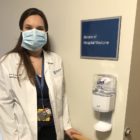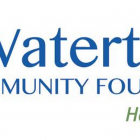The following information was provided by Congresswoman Katherine Clark’s office:
Mental Health Resources
In addition to the physical risks associated with COVID-19, the stress of losing your job or income, being separated from your loved ones, or not having access to basic family support like child care can also be detrimental to your health. Many of our friends, family, and neighbors are struggling to cope with these new challenges posed by the COVID-19 pandemic, and it is important that all of us receive the love and support we need to get through these hardships. If you need to speak with a crisis counselor immediately, you can call the Massachusetts Disaster Distress Helpline at 1-800-985-5990. The CDC has issued guidelines for coping with a disaster or traumatic event, as well as guidelines for helping children cope with emergencies.For seniors and other at-risk populations who have had to dramatically limit their interactions with others to avoid the spread of COVID-19, the AARP has provided a list of suggestions on how to fight social isolation.For resources on how to proactively monitor your behavioral health and avoid being overwhelmed by stress or anxiety caused by COVID-19, the Substance Abuse and Mental Health Services Administration has provided a list of useful tips for you to follow. The National Suicide Prevention Lifeline also provides 24/7, free and confidential support for people in distress, as well as prevention and crisis resources. If you or someone you know needs help, please call: 1-800-273-8255. Prevention Measures
You’ve likely already heard about many of these preventative measures, but it is important that they be reiterated and regularly practiced as good hygiene and social distancing are the most effective ways of stopping the spread of this virus.







